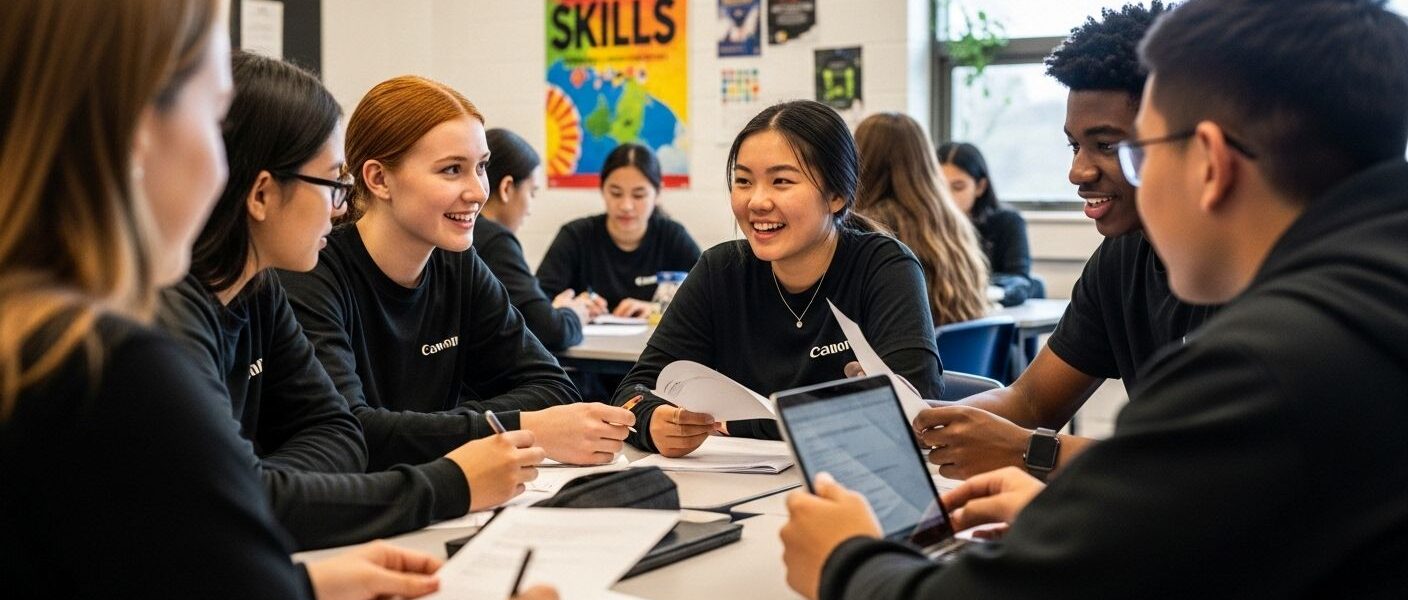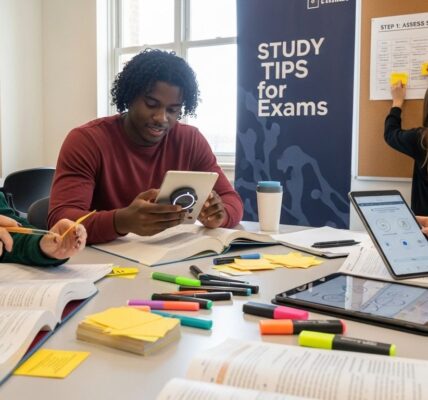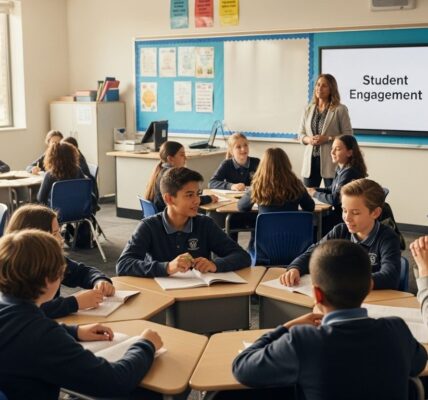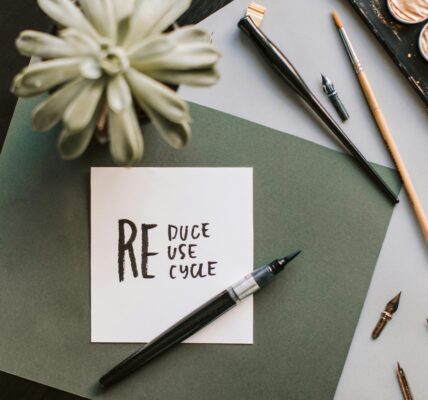
Schools focus a lot on tests and grades, yet most students still struggle with real world challenges after graduation. Studies found that students with strong life skills show significantly reduced anxiety and higher social functioning compared to their peers. Surprising, right? The secret is that these practical abilities matter even more than perfect exam scores when it comes to actual success in life.
Table of Contents
- Defining Life Skills For Students: What They Are
- The Importance Of Life Skills For Students: Why They Matter
- Key Life Skills For Students: What Are They?
- How Life Skills Shape Student Success: The Mechanisms At Play
- Practical Applications Of Life Skills In Everyday Life
Quick Summary
| Takeaway | Explanation |
|---|---|
| Life skills go beyond academics | They include cognitive, emotional, and social abilities essential for real-world challenges. |
| Core life skills enhance personal growth | Skills like self-awareness and emotional regulation build resilience and confidence. |
| Strong interpersonal skills are crucial | Effective communication, empathy, and relationship-building lead to professional success. |
| Life skills improve decision-making | Students learn better personal management, financial literacy, and time management. |
| Investing in life skills is essential | Developing these skills lays a foundation for lifelong personal and professional success. |
Defining Life Skills for Students: What They Are
Life skills for students represent a comprehensive set of cognitive, emotional, and social competencies that go beyond traditional academic learning. These skills are essential for navigating personal, professional, and social challenges with confidence and effectiveness.
Core Components of Life Skills
Life skills encompass a wide range of abilities that enable students to understand themselves, interact positively with others, and manage various life situations. According to research from the Institute of Education Sciences, these skills can be categorized into several critical domains:

- Personal Management Skills: Self-awareness, emotional regulation, and stress management
- Social Skills: Communication, empathy, and relationship building
- Problem Solving Abilities: Critical thinking, decision making, and adaptive reasoning
Why Life Skills Matter for Student Development
These skills are not supplementary but fundamental to a student’s holistic growth. They prepare young individuals to handle real world complexities by developing resilience, self confidence, and strategic thinking. Students equipped with strong life skills can better:
- Communicate effectively across different social contexts
- Manage personal and academic challenges
- Build meaningful relationships
- Make informed decisions
By understanding and cultivating these skills, students create a robust foundation for personal and professional success. Learn more about enhancing student potential through comprehensive skill development.
The Importance of Life Skills for Students: Why They Matter
Life skills are far more than academic curriculum supplements. They represent critical competencies that transform students from passive learners to active, adaptable individuals prepared for complex personal and professional challenges.
Transforming Personal Development
Life skills serve as fundamental building blocks for personal growth and psychological resilience. According to research from the Journal of Education and Health Promotion, students who develop robust life skills demonstrate significant improvements in overall well being, including reduced anxiety, better emotional regulation, and enhanced social functioning.
The comprehensive impact of life skills extends beyond immediate academic environments, preparing students for long term success by:
- Developing emotional intelligence
- Building self confidence
- Creating adaptive problem solving strategies
- Establishing healthy interpersonal relationships
Long Term Personal and Professional Advantages
Students equipped with strong life skills gain substantial advantages in navigating complex social and professional landscapes. These skills provide crucial tools for:
- Effective communication across diverse settings
- Strategic decision making
Moreover, employers increasingly value candidates who demonstrate advanced interpersonal and emotional intelligence capabilities.
The following table summarizes key advantages that life skills provide for students in both personal and professional contexts.
| Advantage Area | How Life Skills Make a Difference |
|---|---|
| Emotional Well-being | Reduced anxiety, improved self-confidence, resilience |
| Social Functioning | Better communication, building stronger relationships |
| Academic Performance | Enhanced decision making, problem-solving ability |
| Professional Success | Valued by employers, adaptability in the workplace |
Explore strategies for student skill enhancement to understand how these competencies translate into professional success.
By investing in comprehensive life skills education, students create a robust foundation for personal growth, professional adaptability, and sustained emotional well being.
Key Life Skills for Students: What Are They?
Life skills represent a dynamic collection of personal capabilities that extend far beyond traditional academic knowledge. These essential competencies enable students to navigate complex personal, social, and professional landscapes with confidence and adaptability.
Essential Personal Management Skills
According to research from Harvard University’s Center on the Developing Child, core life skills encompass crucial personal management abilities that help students regulate their behavior and emotions. These foundational skills include:
- Self Control: Managing impulses and emotions effectively
- Strategic Planning: Setting goals and creating systematic approaches
- Emotional Awareness: Understanding and processing personal feelings
- Adaptability: Responding flexibly to changing circumstances
Interpersonal and Social Competencies
Beyond individual capabilities, life skills also encompass critical social abilities that determine successful interactions. Students with robust interpersonal skills can:
- Communicate clearly and empathetically
- Build and maintain meaningful relationships
- Resolve conflicts constructively
- Practice active listening
These social competencies are fundamental for personal growth and professional success. Discover more about enhancing student potential through comprehensive skill development.
By understanding and cultivating these multifaceted life skills, students create a comprehensive toolkit for navigating the complexities of modern personal and professional environments.
How Life Skills Shape Student Success: The Mechanisms at Play
Life skills are not passive attributes but dynamic mechanisms that actively transform students’ academic and personal trajectories. They function as intricate cognitive and emotional frameworks that enable students to convert challenges into opportunities for growth and learning.
Cognitive Performance Enhancement
According to research in the Journal of Educational Psychology, life skills directly influence academic performance through several sophisticated neurological and psychological pathways. Students with robust life skills demonstrate superior:
- Cognitive flexibility
- Emotional regulation
- Problem solving capabilities
- Self monitoring techniques
These skills work synergistically to create a comprehensive mental infrastructure that supports academic achievement and personal resilience.
Academic and Professional Translational Mechanisms
Life skills serve as critical translational tools that bridge academic knowledge with real world application. They enable students to:
- Convert theoretical learning into practical strategies
- Navigate complex social and professional environments
- Develop adaptive thinking patterns
- Build sustainable performance strategies
Moreover, the cumulative impact of these skills extends beyond immediate academic contexts. Explore advanced student development strategies to understand how foundational life skills create long term success trajectories.
By understanding these intricate mechanisms, students can intentionally cultivate life skills as powerful tools for holistic personal and professional development.
Practical Applications of Life Skills in Everyday Life
Life skills transform abstract concepts into tangible strategies that students can apply across various personal and professional contexts. These skills serve as practical tools for navigating complex real world challenges with confidence and effectiveness.
Personal Management and Decision Making
According to research from educational policy experts, practical life skills fundamentally improve students’ ability to make informed decisions and manage personal responsibilities. Key application areas include:
- Financial Planning: Budgeting, understanding financial risks
- Time Management: Prioritizing tasks, setting realistic goals
- Emotional Regulation: Managing stress, maintaining mental wellness
- Personal Care: Maintaining health, practicing self awareness
Social and Professional Interaction Skills
Life skills play a critical role in developing robust interpersonal capabilities that translate directly into professional success. Students learn to:
- Communicate effectively across diverse settings
- Resolve conflicts constructively
- Build and maintain professional relationships
- Demonstrate empathy and active listening
Discover strategies for developing practical student skills that enhance personal and professional growth.
By understanding and implementing these life skills, students create a comprehensive toolkit for successfully navigating the complexities of modern personal and professional landscapes.

Equip Students with Lifelong Skills for Real Success
Are you worried your academic achievements alone might not fully prepare you for today’s challenges? The article “Understanding Life Skills for Students: A Comprehensive Guide” highlights a key obstacle many students face: learning how to bridge personal management, social skills, and problem-solving abilities into real-life results. Building resilience, emotional intelligence, and adaptability is vital—but finding practical guidance can be difficult.
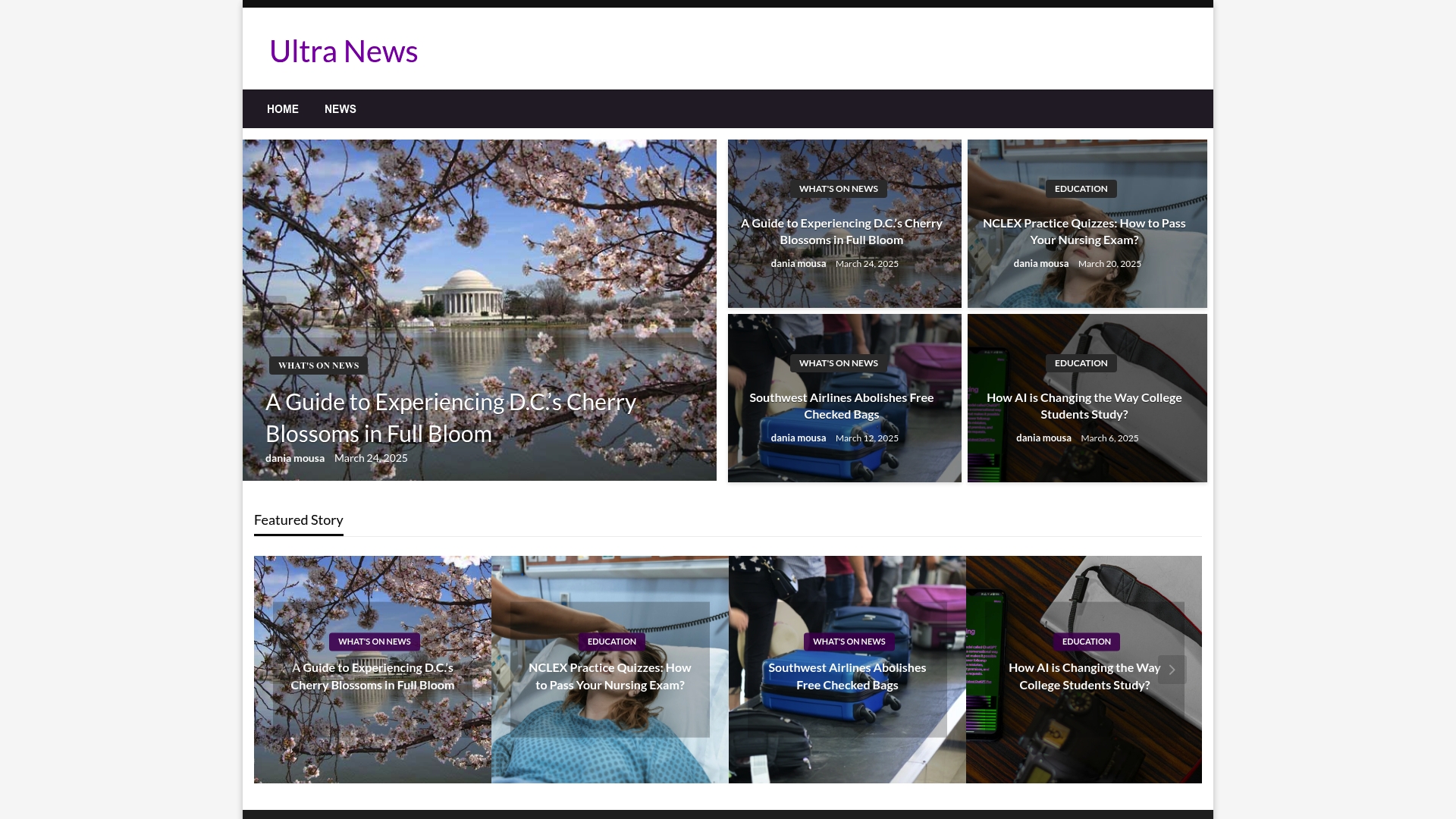
At Ultra News, we connect you with curated, expert-backed resources that empower students just like you to turn these essential life skills into daily strengths. Our regularly updated Education section delivers actionable academic and personal development guides, so you can start practicing better study habits and strong communication skills today. Want to get ahead right now? Visit Ultra News for timely educational insights and start transforming your life skills into lasting success.
Frequently Asked Questions
What are life skills for students?
Life skills for students are a set of cognitive, emotional, and social competencies that help them navigate personal, professional, and social challenges effectively. They include personal management skills, social skills, and problem-solving abilities.
Why are life skills important for student development?
Life skills are crucial for students as they foster personal growth, emotional intelligence, and resilience. These skills enable students to communicate effectively, manage challenges, build relationships, and make informed decisions, ultimately preparing them for future success.
How can students develop their life skills?
Students can develop life skills through various activities such as participating in group projects, learning time management techniques, practicing effective communication, and engaging in reflective exercises that promote self-awareness and emotional regulation.
What are some examples of personal management skills?
Examples of personal management skills include self-control, strategic planning, emotional awareness, and adaptability. These skills help students manage their emotions and behaviors more effectively in both academic and personal contexts.
Recommended
- Best Study Habits for Students: Tips for Success
- 10 Effective Ways to Improve Concentration Fast – Ultra News
- How to Improve Memory: Simple Tips Backed by Science – Ultra News
- News Writing Basics: Essential Skills and Proven Tips
- Cómo trabajar la inteligencia emocional en entornos educativos – Aithor
